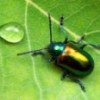ANT COURSE 2010
Danum Valley Field Centre, Sabah Borneo, August 16 - 26
DEADLINE FOR APPLICATION: April 1, 2010
click here for application form
COURSE OBJECTIVES. â ANT COURSE is designed for systematists, ecologists, behaviorists, conservation biologists, and other biologists whose research responsibilities require a greater understanding of ant taxonomy and field research techniques. Emphasis is on the identification of the ant genera and species occurring in Southeast Asia. Lectures will include background information on the ecology, life histories and evolution of ants. Field trips are structured to teach collecting and sampling techniques, and associated lab work provides instruction on specimen preparation, sorting and labeling. Information on equipment/supply vendors, literature, and myrmecological contacts are also presented.
COURSE SIGNIFICANCE. â Ant Course is a unique opportunity to acquire training that is unavailable elsewhere. This course will provide students with 1) the confidence and skills to identify the ant genera of tropical Asia; 2) an understanding of modern specimen processing and curation techniques; 3) an appreciation for the biological diversity of ants, and 4) experience keying to the species level.
SPONSORS. âCalifornia Academy of Sciences and Museum of Comparative Zoology.
BACKGROUND INFORMATION. â ANT COURSE will be taught from August 16 â 26, 2010 at the Danum Valley Field Centre, Sabah Borneo, ( http://www.etawau.com/PlacesInterest/DanumValleyFieldCentre.htm ). The Station is centered amid the richest ant fauna in Asia. .
PARTICIPANT ACCEPTANCE CRITERIA. â ANT COURSE is open to all interested individuals. Priority will be given to those students for whom the course will have a significant impact on their research with ants. An entomological background is not required. We aim to include students with a diverse interest in biology, including ant systematics, ecology, behavioral biology, genetics, and conservation. The high instructor to student ratio will allow students to receive individual attention. ANT COURSE is presented in English and limited to 30 participants
COSTS. â Tuition for the 10-day COURSE is $475 for current students and $675 for non-students. In addition, the Danum Valley station fees for this period, covering dormitory room and board, and flights from Kota Kinabalu to Lahad Datu and transfer to the station is $750. Thus total costs for students is $1225 and non-students $1425. Transportation costs between home and Kota Kinabalu to be borne by all participants.
FELLOWSHIPS. â Four fellowships are available. Two fellowships cover tuition fees and two fellowships cover station fees. Students may apply for additional fellowships to assist in travel. Those interested in attending the course should seek all possible avenues to secure funding for the course. You should only apply for an Ant Course fellowship if you cannot find other support and it is essential for your participation in the course. Beware that if you apply for an ant course fellowship it implies that fellowship funding is essential to your participation in the course. Thus, if you are not selected for a fellowship, you might not be accepted into the course. Please notify the course if your funding request status changes before the application due date.
COURSE APPLICATION. â Application and course information at http://www.antweb.org. The first step is to fill out a form at: http://spreadsheets.google.com/viewform?formkey=dGNTcVh1ZzVGNjd1aVU5cnV1dWZNbVE6MA . In addition, you must also submit a CV, personal statement, and letter of reference to AntCourse@gmail.com.
2010 POSSIBLE Instructors:
Brian Fisher (Coordinator), Dept. of Entomology, California Academy of Sciences, San Francisco, CA, bfisher@calacademy.org
Simon Robson (Coordinator), Department of Zoology , School of Tropical Biology , James Cook University , Townsville QLD 4811, Australia , Simon.Robson@jcu.edu.au
Leeanne Alonso, Rapid Assessment Program, Conservation International, Washington, DC USA, L.alonso@conservation.org
Chris Burwell, Curator (Entomology), Queensland Museum, Australia, chris.burwell@qm.qld.gov.au
Arthur Chung, Forest Research, Centre, Sabah Forestry, Department, PO Box 1407, 90715 Sandakan, Sabah arthur.chung@sabah.gov.my
Yoshiaki Hashimoto, Museum of Nature and Human Activities, Hyogo, 6chome Yayoigaoka Sanda Hyogo, Japan 669-1546, yoshiaki@hitohaku.jp
Mike Kaspari, Dept. of Zoology, University of Oklahoma, Norman OK, mkaspari@ou.edu
John LaPolla, Dept. of Biological Sciences, 8000 York Road, Towson University, Towson, MD 21252, JLapolla@towson.edu
Jack Longino, Lab I, The Evergreen State College, Olympia WA, longinoj@evergreen.edu
Corrie Moreau, Division of Insects, Department of Zoology, Field Museum of Natural History, 1400 South Lake Shore Drive, Chicago, IL 60605, cmoreau@fieldmuseum.org
Christian Peeters, Laboratoire Ecologie et Evolution, Case 237, Universite Pierre et Marie Curie, 7 quai Saint Bernard, 75005Â Paris; cpeeters@snv.jussieu.fr
Steve Shattuck, CSIRO Entomology, Australian Natâl Insect Collection, P.O. Box 1700, CANBERRA , ACT 2601, Australia, steve.shattuck@csiro.au
Andrew Suarez, Departments of Entomology and Animal Biology, University of Illinois, Urbana, IL, avsuarez@life.uiuc.edu
Walter Tschinkel, Department of Biological Science Florida State University Tallahassee, FL, tschink@bio.fsu.edu
Phil Ward, Department of Entomology, University of California, Davis, CA, psward@ucdavis.edu
Bakhtiar Yahya, Deputy Director of Institute for Tropical Biology & Conservation, University of Malaysia, Sabah, bakhtiareffendi@yahoo.co.uk
Teaching Assistant:
Noel Tawatao, Department of Biology (Area 18), University of York, PO Box 373, York, YO10 5YW, nt516@york.ac.uk
Guest (if at station):
Kalsum Mohd Yusah, Museum Insect Room Group, Department of Zoology, University of Cambridge km450@cam.ac.uk
Tom Fayle, Museum Insect Room Group, Department of Zoology, University of Cambridge, tmf26@cam.ac.uk

I wish I could go to ant course twice!
ditto